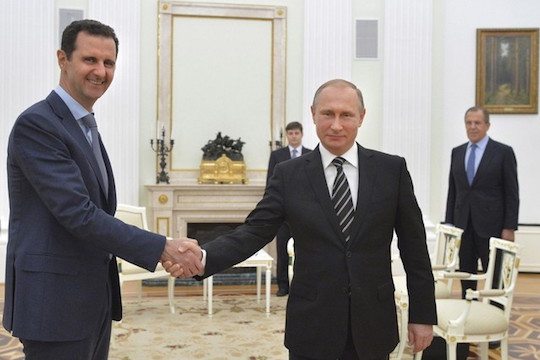With the fall of eastern Aleppo to the forces backing Bashar Al Assad now looking imminent, what happens next in Syria?
The last major urban area in western Syria outside the control of the Al Assad regime remains Idlib. As Mr Al Assad and his Russian and Iranian allies have sought to reconquer Syria, their priority has been to remove the opposition from urban areas in the stretch between Damascus and the Turkish and Jordanian borders. This means that Idlib governorate will almost certainly be next.
Mr Al Assad can take further solace in the fact that his regime has stabilised itself, so that no one is discussing a political solution to the war in Syria. The Syrian president had always wanted a military solution, as a way of circumventing any discussion of his departure from office, and the Russians and Iranians obliged.
As opposition forces are pushed out of Syrian cities, the insurgency will become more ruralised. There is an advantage, albeit limited, in this, in that the regime, lacking manpower to control large chunks of territory, will find it more difficult to crush opposition forces scattered in the countryside.
However, at best the opposition forces would be isolated from vital areas allowing them to resupply themselves. These forces would be under constant air attack, preventing them from concentrating their forces and provoking even less reaction from an international community indifferent to the loss of life in Syria.
In eastern Syria the dynamics have been favouring the Assad regime as well. The fight against ISIL has meant that the regime is both regarded as an objective ally against the group, and that a considerable amount of fighting is being conducted by forces other than the depleted Syrian army.
The Syrian regime benefits in some regards in two ways. In northern Syria the Turks are combating the Kurds, who represent a barrier to a reimposition of regime control over north-eastern Syria. Meanwhile, an ISIL defeat would probably change the balance in Deir Al-Zor governorate to Mr Al Assad’s advantage.
This complicated situation apparently had an effect in Aleppo, where Kurdish forces fought on the side of the regime, advancing into rebel-held areas from the Sheikh Maqsoud quarter they control. For the Kurds the priority was gaining territory and reinforcing themselves for an eventual reckoning with the regime.
The big unknown is what Turkey will do. While it is conceivable that the Turks will continue to maintain a zone of control in north-eastern Syria, and that this could serve as a rallying point for Syrian rebel groups, the reality may be more cynical. Many observers believe that the Turks, after reconciling with Russia, abandoned Aleppo in exchange for deploying in Syria to prevent the emergence of a Kurdish entity in the country’s north.
If so, that would imply that the Turkish priority is no longer to remove Mr Al Assad, but to secure a zone of influence for itself in Syria. This can serve as a barrier against Kurdish expansion, but also, potentially, a source of leverage in any post-war settlement. In that case Turkish interests alone would be the priority.
None of these scenarios bode well for the Syrian opposition. Even if the fighting continues, all momentum will have been lost. With an exhausted population, widespread devastation in Syria and regional states increasingly less able to supply the opposition, it’s very difficult to imagine that rebel groups will spring back to life.

